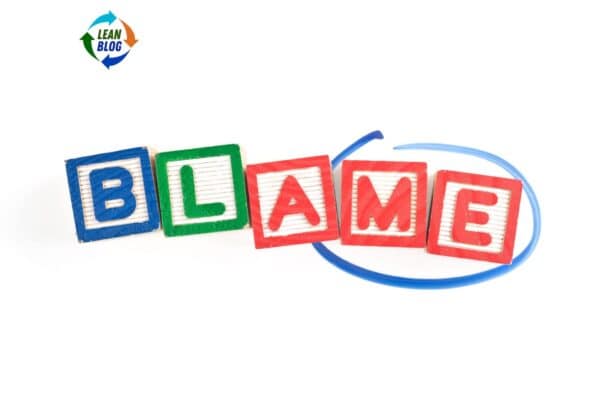How often do you hear executives blaming employees, including frontline workers, for different problems or poor performance?
I don't think that's a good look when leaders do that.
Leaders are responsible for the system, especially senior leaders. Even though they are part of a system, they have more freedom and more ability to change systems that ultimately drive most performance.

A blaming leader looks at low productivity numbers and blames “lazy workers.”
A blaming leader sees mistakes and blames “careless workers.”
A blaming leader sees employees choosing not to speak up about problems and blames “cowardly workers.”
OK, fire all of those bad employees. Replace them with new employees, and how are they going to perform? They'll perform about the same–due to the system being the same, which includes the processes, product or service design, technologies, and more.
The system might likely perform worse because of all of the experience that was walked out the door.
Call to Action: Embrace Systemic Change for Sustainable Improvement
As leaders, the responsibility to cultivate a culture of continuous improvement and high performance lies with us. It's time to shift our mindset from blaming to understanding and evolving the systems within which our teams operate. I challenge you, as leaders, to take a hard look at your organization's processes, technology, and culture.
Ask yourselves:
- Are we designing systems that set our teams up for success?
- How can we better support our employees in identifying and solving problems?
- What steps can we take to encourage a culture of openness and innovation?
Are we working on the “three systems,” those being the work system, the improvement system, and the management system?
It's crucial to recognize that sustainable performance improvement requires systemic changes, not just personnel changes. This means investing in better training, upgrading technologies, refining processes, and fostering a culture where every employee feels empowered and valued.
I invite you to join me in making a commitment today: to be a leader who builds, not berates, who reforms, not blames.
Start by evaluating the systems you control and identify one area for improvement this month. Share your commitment and progress with your team and encourage them to contribute their insights.
Together, we can transform our workplaces into environments where excellence is nurtured, and problems are seen as opportunities for growth and innovation.
Let's make a difference–not just for our bottom line, but for all the people who help us meet and exceed our goals every day. Are you ready to lead this change? Reach out to discuss how we can work together to turn these ideas into action and achieve tangible results.
What do you think? Please scroll down (or click) to post a comment. Or please share the post with your thoughts on LinkedIn – and follow me or connect with me there.
Did you like this post? Make sure you don't miss a post or podcast — Subscribe to get notified about posts via email daily or weekly.
Check out my latest book, The Mistakes That Make Us: Cultivating a Culture of Learning and Innovation:










Once I started blaming myself for the mistakes, they were resolved quicker.
Thanks, Bob. What opened your eyes to the need to look at yourself as a leader instead of blaming employees?
Join the LinkedIn discussion:
Sam Morgan wrote:
“My wife shared this reframe a few years back that’s stuck with me: we need to create spaces where folks feel safe and also there needs to be bravery from folks sharing their perspective. It’s a both/and. Bravery and safety. How does that feel?”
My reply:
“My view on that… I think bravery is admirable when you see it, but I’m afraid it’s not scaleable or sustainable. When somebody gets punished for their bravery, there will be fewer people willing to speak up.”